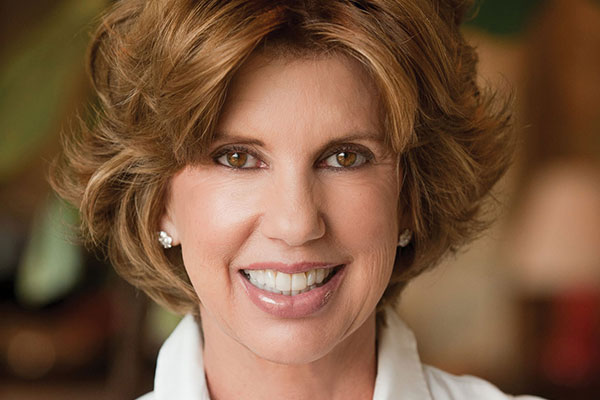Never Give Up
How to Stay Hopeful & Other Inspiring Advice from a Pancreatic Cancer Survivor
by Laurie MacCaskill
At age 55, I was in perfect health and terrific physical shape. Then, one day, I experienced a sharp, intense lightning bolt of pain throughout my entire body. It only lasted about five seconds, but it transitioned into a nagging back pain.
I immediately went to see a doctor but was sent home with diagnoses of gas and a pulled muscle. It wasn’t until a few weeks later when the pain didn’t go away and I began losing weight unexplainably that I returned to my doctor insisting on more tests. After an advanced endoscopy and a colonoscopy, I heard the words that would change my life forever: “Laurie, you have pancreatic cancer.”
At that point, the pancreatic adenocarcinoma was stage III and had already spread to my duodenum and lymph nodes. After over three years of chemotherapy, multiple surgeries (including the Whipple procedure, which is one of the most complicated and risky abdominal surgeries in existence), numerous complications, complex therapies, nearly insurmountable side effects, and too many emergency room visits to count, I was told the treatment was no longer working and I had three to six months to live.
I was determined to keep fighting and found another doctor through the recommendation of good friends. He started me on an IV drug, ceftriaxone (Rocephin). This treatment would require me to come to the hospital every day, twice a day, for thirty days to have an IV administered for two hours in the morning and two hours in the evening. I figured if I only had three months to live, I most definitely did not want to spend them in a hospital. I asked my doctor if I could learn to administer the treatment myself so I could continue living my life, stay active, and do the things I loved, like bicycling in the mountains of Colorado.
The treatment was successful, and, today, I am cancer-free and feeling great. Having a positive mindset and attitude is what helped me overcome this chapter of my life. Throughout my journey, I was tested and pushed to my physical and emotional limits, but I learned a lot about this disease and about myself and how the power of positive thinking is crucial. I want people to know that there is hope; you don’t have to give up just because you’ve been diagnosed with cancer. There is a way to live with cancer.
Yes, you have to accept a new normal and do things differently, but you can still control how you think. Allow yourself the pity party for a little bit, but know that your thoughts can influence the way you physically feel.
Throughout my journey, I was tested and pushed to my physical and emotional limits.
When I would get to those dark places, I knew I had to get out of that negative mindset. It’s all about shifting your mood. And you can do this through meditation, prayer, physical activity, listening to music, watching your favorite movie, spending time with friends – whatever it is that takes the focus off you, off the pain and the disease and puts you in a different state of mind.
Keeping a gratitude journal was the main tool that kept me going during my fight. Daily, I would jot down three things that made me grateful, and that I might have taken for granted in my old life. Reading them at the end of the week and reflecting gave me hope. When you learn to celebrate the small accomplishments, you don’t feel hopeless or helpless.
Today, I travel the country delivering motivational speeches and interacting with volunteers, survivors, researchers, pharmaceutical professionals, experts in the medical and wellness communities, and corporations. I am also a Personal Patient Advocate working one on one with people diagnosed with cancer. I am committed to ensuring that others traveling this journey have a “translator” in their midst – offering guidance and, most importantly, hope. While we can’t do anything about the width or the length of our lives, we can do something about its depth.
Laurie MacCaskill is a woman who has defied the odds as a pancreatic cancer survivor, living cancer-free since 2006 after being told she had three to six months to live. Today, Laurie has made it her mission to help others survive by sharing her story as a motivational speaker. She has also served on the board of directors for the Pancreatic Cancer Action Network for the past nine years and as chair for the last three years. You can learn more about Laurie at lauriemaccaskill.com.
This article was published in Coping® with Cancer magazine, March/April 2018.
Everyone has a unique story to share. Do you want to share your survivor story? We consider a cancer survivor to be anyone living with a history of cancer – from diagnosis through the remainder of life. Here are our submission guidelines.


